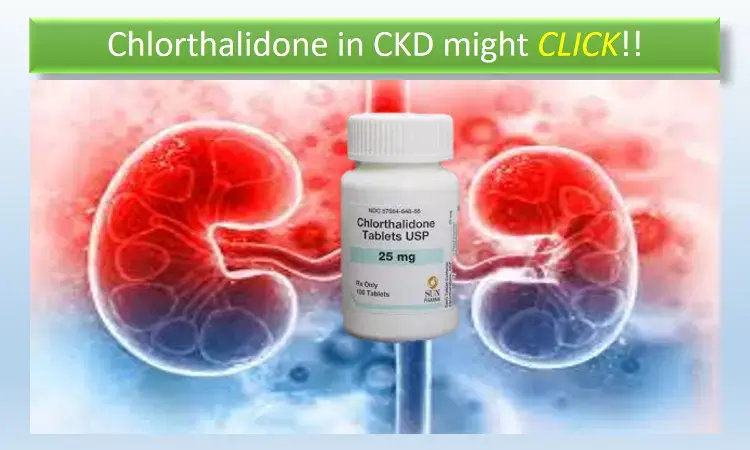- Home
- Medical news & Guidelines
- Anesthesiology
- Cardiology and CTVS
- Critical Care
- Dentistry
- Dermatology
- Diabetes and Endocrinology
- ENT
- Gastroenterology
- Medicine
- Nephrology
- Neurology
- Obstretics-Gynaecology
- Oncology
- Ophthalmology
- Orthopaedics
- Pediatrics-Neonatology
- Psychiatry
- Pulmonology
- Radiology
- Surgery
- Urology
- Laboratory Medicine
- Diet
- Nursing
- Paramedical
- Physiotherapy
- Health news
- Fact Check
- Bone Health Fact Check
- Brain Health Fact Check
- Cancer Related Fact Check
- Child Care Fact Check
- Dental and oral health fact check
- Diabetes and metabolic health fact check
- Diet and Nutrition Fact Check
- Eye and ENT Care Fact Check
- Fitness fact check
- Gut health fact check
- Heart health fact check
- Kidney health fact check
- Medical education fact check
- Men's health fact check
- Respiratory fact check
- Skin and hair care fact check
- Vaccine and Immunization fact check
- Women's health fact check
- AYUSH
- State News
- Andaman and Nicobar Islands
- Andhra Pradesh
- Arunachal Pradesh
- Assam
- Bihar
- Chandigarh
- Chattisgarh
- Dadra and Nagar Haveli
- Daman and Diu
- Delhi
- Goa
- Gujarat
- Haryana
- Himachal Pradesh
- Jammu & Kashmir
- Jharkhand
- Karnataka
- Kerala
- Ladakh
- Lakshadweep
- Madhya Pradesh
- Maharashtra
- Manipur
- Meghalaya
- Mizoram
- Nagaland
- Odisha
- Puducherry
- Punjab
- Rajasthan
- Sikkim
- Tamil Nadu
- Telangana
- Tripura
- Uttar Pradesh
- Uttrakhand
- West Bengal
- Medical Education
- Industry
Adding Chlorthalidone can improve BP control even in CKD patients: CLICK study

There has been a general reluctance to the use of thiazide class of diuretics in patients with advanced chronic kidney disease (CKD), due to the belief that they lose diuretic efficacy as kidney function declines. Challenging this general perception, in the latest issue of NEJM, Agarwal et al have published the results of CLICK trial that show chlorthalidone therapy improves blood-pressure (BP) control at 12 weeks as compared with placebo in patients with advanced CKD and poorly controlled hypertension.
This ambitious target of SBP< 120mmHg as recommended by recent guidelines is difficult to achieve with currently available antihypertensive medications, particularly in patients with more advanced CKD (stages 4 and 5). The choice of a second- or third-line agent after exhausting options like ACE-inhibitors, ARBs or CCBs is more difficult, largely because of a lack of relevant clinical evidence.
On the basis of preliminary evidence of an effect on BP in patients with CKD, Agarwal et al hypothesized that among patients with advanced CKD and uncontrolled hypertension, chlorthalidone would decrease the 24-hour ambulatory systolic blood pressure and also reduce the degree of albuminuria over 12 weeks and provide preliminary evidence that chlorthalidone is renoprotective and cardioprotective.
They randomly assigned patients with stage 4 CKD and poorly controlled hypertension, in a 1:1 ratio to receive chlorthalidone at an initial dose of 12.5 mg per day, with increases every 4 weeks if needed to a maximum dose of 50 mg per day, or placebo; randomization was stratified according to previous use of loop diuretics.
In the double-blind CLICK trial, 160 patients with stage 4 CKD, 76% of whom had diabetes, were randomly assigned in a 1:1 ratio to receive chlorthalidone or placebo and were followed over a 14-week period. The primary outcome was the change in 24-hour ambulatory systolic blood pressure from baseline to 12 weeks. Secondary outcomes were the change from baseline to 12 weeks in the urinary albumin-to-creatinine ratio, N-terminal pro–B-type natriuretic peptide level, plasma renin and aldosterone levels, and total body volume. Safety was also assessed.
The patients were already receiving a mean of 3.4±1.4 antihypertensive agents, which, in all but two patients, included either an ACE inhibitor or an angiotensin-receptor blocker.
The results showed BP reductions of −11.0 mm Hg in the chlorthalidone group and −0.5 mm Hg in the placebo group.The percent change in the urinary albumin-to-creatinine ratio from baseline to 12 weeks was lower in the chlorthalidone group than in the placebo group by 50 percentage points.
Hypokalemia, reversible increases in serum creatinine level, hyperglycemia, dizziness, and hyperuricemia occurred more frequently in the chlorthalidone group than in the placebo group.
These results should dispel concerns that chlorthalidone is "ineffective" as an antihypertensive agent in patients with stage 4 CKD. "This reversible acute drop in eGFR, along with the reduction in albuminuria, suggests that chlorthalidone might reduce intraglomerular pressure in the same way as other classes of drugs with proven renoprotective actions, namely ACE inhibitors, angiotensin-receptor blockers, and sodium–glucose cotransporter inhibitors", notes David C. Wheeler, M.D in an accompanying editorial.
If the results of such a trial were favorable, chlorthalidone could prove to be a valuable addition to the growing number of therapeutic agents of established clinical benefit in the management of CKD.
Source: NEJM:
1. DOI: 10.1056/NEJMe2118149
2. DOI: 10.1056/NEJMoa2110730
MBBS, MD , DM Cardiology
Dr Abhimanyu Uppal completed his M. B. B. S and M. D. in internal medicine from the SMS Medical College in Jaipur. He got selected for D. M. Cardiology course in the prestigious G. B. Pant Institute, New Delhi in 2017. After completing his D. M. Degree he continues to work as Post DM senior resident in G. B. pant hospital. He is actively involved in various research activities of the department and has assisted and performed a multitude of cardiac procedures under the guidance of esteemed faculty of this Institute. He can be contacted at editorial@medicaldialogues.in.
Dr Kamal Kant Kohli-MBBS, DTCD- a chest specialist with more than 30 years of practice and a flair for writing clinical articles, Dr Kamal Kant Kohli joined Medical Dialogues as a Chief Editor of Medical News. Besides writing articles, as an editor, he proofreads and verifies all the medical content published on Medical Dialogues including those coming from journals, studies,medical conferences,guidelines etc. Email: drkohli@medicaldialogues.in. Contact no. 011-43720751


